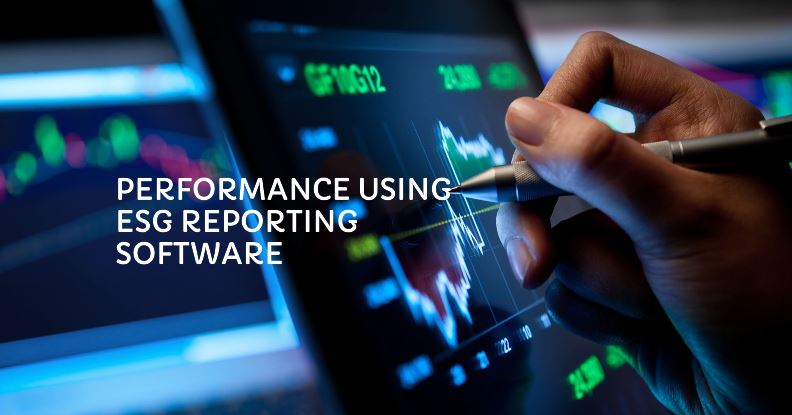In a world increasingly focused on sustainability, environmental responsibility, and ethical governance, businesses are realizing that their Environmental, Social, and Governance (ESG) performance is no longer just a measure of good corporate citizenship, but a critical factor in their overall success.
ESG reporting has evolved from a mere compliance requirement to a strategic imperative. To help companies navigate this complex landscape, ESG reporting software has emerged as an invaluable tool.
This article explores how ESG reporting software can enhance decision-making, aid in risk management and resilience, and contribute to brand and reputation building.
ESG Reporting Software: A Comprehensive Overview
ESG reporting software is a technological solution designed to facilitate the collection, analysis, and reporting of a company’s ESG data.
It helps organizations assess and measure their ESG performance across various parameters, including environmental impact, social responsibility, and corporate governance.
By streamlining the data collection and reporting process, this software empowers businesses to gain a deeper understanding of their ESG performance and make more informed decisions.
ESG Reporting Software helps for Decision-Making
1. Data-Driven Insights
ESG reporting software equips organizations with the tools to collect, analyze, and visualize vast amounts of ESG data. With this wealth of information at their disposal, decision-makers can gain a more comprehensive view of their company’s performance in these areas.
Data-driven insights allow for the identification of trends, areas for improvement, and potential risks. This, in turn, enables businesses to make informed decisions about resource allocation, strategic planning, and product development.
2. Strategic Alignment
By providing a centralized platform for ESG data, reporting software helps align ESG goals with overall corporate strategy.
Companies can use the data to identify areas where their ESG efforts complement and enhance their long-term objectives.
This alignment ensures that sustainability initiatives are integrated into decision-making processes, fostering a culture of responsibility and innovation.
3. Stakeholder Engagement
ESG reporting is not just about satisfying regulators; it is also an essential tool for engaging with stakeholders.
ESG reporting software allows companies to communicate their sustainability efforts effectively. This can positively impact relationships with customers, investors, and employees.
By being transparent about their ESG performance, businesses can build trust and strengthen their position in the market.
Risk Management and Resilience
1. Early Identification of Risks
Incorporating ESG factors into risk assessment is crucial for modern businesses. ESG reporting software enables companies to identify potential risks related to environmental disasters, social controversies, and governance issues.
By recognizing these risks early, organizations can implement proactive measures to mitigate their impact, ultimately enhancing their resilience in the face of adversity.
2. Regulatory Compliance
The regulatory landscape for ESG reporting is continually evolving. Non-compliance with ESG regulations can result in legal consequences and reputational damage.
ESG reporting software ensures that companies remain up-to-date with changing requirements, helping them avoid costly fines and safeguarding their reputation.
3. Competitive Advantage
Companies that effectively manage ESG risks and demonstrate their commitment to sustainability through reporting software gain a competitive advantage.
In a world where consumers increasingly consider the environmental and social impact of their purchases, ESG-conscious businesses are better positioned to attract and retain customers. Moreover, investors are more likely to favor companies with robust risk management processes in place.
Brand and Reputation Building
1. Credibility and Transparency
Transparency is a cornerstone of effective ESG reporting. ESG reporting software helps companies maintain a high level of credibility by ensuring that data is accurate, consistent, and transparent.
This credibility, in turn, fosters trust among stakeholders, enhancing a company’s reputation.
2. Attracting ESG Investors
Investors are increasingly looking for sustainable and responsible investment opportunities. ESG reporting software enables businesses to communicate their commitment to ESG values clearly.
This makes them more attractive to ESG-focused investors, who are likely to support companies that align with their values.
3. Competitive Differentiation
In a crowded marketplace, it’s essential to stand out. Companies that excel in ESG reporting and actively contribute to environmental and social causes can use their commitment to differentiate themselves from competitors. This not only boosts their reputation but also increases customer loyalty.
Conclusion
In the modern business landscape, ESG reporting software has evolved from a compliance tool to a strategic imperative. It empowers organizations to make informed decisions, effectively manage ESG-related risks, and build a strong brand and reputation.
By harnessing the capabilities of ESG reporting software, companies can position themselves for long-term success in a world where sustainability, ethics, and responsible governance are paramount.
Embracing ESG reporting software is not just a choice; it is a necessity for businesses aspiring to thrive in an ESG-driven world.




